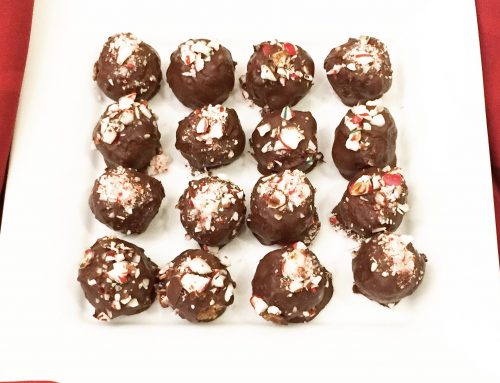It’s crazy to think that I graduated from undergrad 4 years ago! It was some of the best years of my life and am thankful for the career my education has led me to. Prior to starting university, I thought I would have no problem maintaining my weight. Especially since I was entering a food and nutrition program, already having a bit of a background in the field and growing up in a pretty healthy household, I thought I had all the knowledge and skills required to keep up with my healthy lifestyle. That being said, like most university students, the demands of school, social events, extra-cirriculars, and planning for the future took up a huge part of my time (and budget), leaving food and activity as a secondary (more like a 10th-in-line) thought. Last year, I wrote an article about avoiding the dreaded “freshman 15”, using both personal experience as a university student and professional experience as a working dietitian. Since I’ve been out of school for a while now, I thought it would give an interesting perspective to have my 2 summer volunteer students write about their tips for staying healthy as they enter their (demanding) 3rd and 4th year of the Honors Specialization in Nutrition & Dietetics program at Western University:
As nutrition students, healthy eating is something we learn about every day, and we are lucky enough to have the food skills to prepare healthy meals and repurpose them throughout the week to save money and waste. Despite this, it isn’t always easy to apply these principles. In addition, many students lack the food skills required to make themselves healthy meals, but also lack the time in their schedule to cook. It can be easier for students to grab a bite from the nearest fast food place on campus rather than preparing their own dinners, especially once exams come around. The problem is, this can lead to bad eating habits, weight gain, increased spending, and further underdeveloped food skills. It’s important that us students find the time to cook and grocery shop to ensure that we are staying healthy throughout the year and not letting our crazy schedules get the best of us. Staying healthy will not only make us feel better, but it will give us the energy needed to spend hours on end in the library and the brain power to better retain information for our exams.
Samantha says that staying active can be the most difficult for her during the year. During the summer months, I spend most of my days outside on my feet and come home from work at the end of the day feeling active and refreshed. It is quite the opposite while I am away at school. The cold keeps me inside as much as possible and 3 hour lectures give little time for exercise. It can be especially intimidating for some to go to the school gym, as the machines are almost always being used by body builders and gym rats. The gym may offer classes that pertain more to my style of exercise, but they usually are during a lab or lecture, or cost money to sign up for them. However, if I don’t exercise, I often feel lethargic and lazy, making it that much harder to find the energy to study.
Even though taking the time to cook and exercise throughout the school year can be difficult, here are our tips for achieving your healthiest self while in university:
Meal plan to prepare most of your meals at home. Before heading to the grocery store, plan out the meals you want to eat during the week. Take some time to come up with healthy meal options, and try incorporating foods that can be re-purposed from meal to meal like rice or quinoa to save both time and money. Once you get to the grocery store, stick to your shopping list as much as possible. This can avoid overspending at the grocery store and making impulse buys of foods that may not be as healthy. Fast foods are typically high in calories but low in nutrients and costlier than making your own food. Use grocery-store time savers such as pre-cut veggies, marinated meats and frozen fruit to cut down on prep-time.
Prepare foods in batches. Batch-cooking food is a great way to limit meal-prep times and have food on hand for those days when you just don’t feel like cooking. Making egg muffins for breakfast on a Sunday will give you a quick and healthy meal during the week before an 8:30 class when you’re rushing out the door. Preparing a big pot of soup gives you a couple meals right after it’s made, and the rest can be put away in the freezer in single serving portions for after a long winter day on campus. This makes it just as convenient to eat healthy as it is to buy processed/take out foods.
Freeze. Sometimes when living on your own it can be hard to finish an entire pint of strawberries or a loaf a bread before they become mouldy. This is why purchasing food that can be kept in the freezer for a few months can help you save money and waste. Having a bag of frozen peas or broccoli can allow you to have a balanced-plate meal when you’re running low on fresh vegetables. Keeping sliced bread in the freezer lets it last for as long as you need it, and can be quickly defrosted in the microwave for a piece of toast during breakfast. As well, when you see meats and fish on sale at the grocery store, pick up an extra serving or two to keep in the freezer. When exams come around and there is little time to go grocery shopping, you know that you have healthy food on hand to keep you energized and full instead of ordering in a box of pizza or picking up some fast food.
Always have healthy snacks on hand with you. Having pre-made healthy snacks gives you the ability to grab something quickly if you’re in a rush. Buy 2 or 3 snacks like grapes, cherry tomatoes, nuts, or whole grain crackers from the grocery store at the beginning of each week. During a study break, separate and organize them into snack-sized portions to store in the fridge or cupboard. When you’re on your way out the door, you can easily grab a portion and know that you will have a healthy snack with you when you get hungry. This keeps you from getting too hungry throughout the day, stabilizes your blood sugar, improves your concentration, and may help you avoid tempting convenience foods.
Don’t skip meals. We often get so busy that it can become challenging to make time for eating, but this is something that should not be missed! Make each meal a priority and plan time for it within your schedule. If smaller but more frequent meals work better for you, that is perfectly ok! Just make sure these meals include a good source protein and fibre to keep you full for longer.
Watch what you are drinking. University students are often told to reduce the amount of coffee or alcohol they are consuming, and while this is important, we also need to watch our intake of sugary drinks like juice, pop and energy drinks. When choosing a beverage, it is best to stick to water as much as possible. Flavour your water with lemon, berries, fresh herbs or cucumber!
Learn what a balanced plate should look like. It can be confusing to figure out how to portion out your meals so they contain enough of the food groups. Ideally 1/2 of your plate should be fruits and vegetables, 1/4 should be whole grain products/starches, 1/4 should be protein/meat and alternatives. Aim for plant-based proteins at least once a week such as, lentils, chickpeas, black beans or tofu. This can help to create a balanced diet without much effort.
Join a team. This doesn’t necessarily mean becoming a varsity athlete, but it could be finding an intramural sports team or an exercise group. Grab some of your friends and sign up for an intramural Water Polo league or audition for a recreational dance team. Not only are these great ways to meet new friends and socialize, they are fun ways to stay active during the year and get more involved on campus.
Take advantage of your study breaks. If you’ve spent the last 3 hours studying in a library, it’s time to take a quick break and recharge. Instead of using the next hour or so to watch Netflix or YouTube, take the time to exercise and get your energy levels back up. Whether that’s going to the gym next to the library and running on the treadmill, doing a quick Zumba class, or even doing some yoga on your bedroom floor, taking the time to exercise will make you feel more energized, clear your mind, and get you ready to study some more. It will also make sure you’re keeping active during exam times and throughout the year.
Everything in Moderation. While eating healthy is important there’s nothing wrong with indulging in your favourite foods every once and a while! Balance is key to staying sane throughout the year and that applies to food, exercise, studying and social events.
Going back to school is a big transition for our daily routines, our food, and our exercise. It’s important that we make an effort in keeping our bodies healthy. Even though it might seem difficult to miss out on an hour or so of studying a day to maintain a healthy lifestyle, your body, brain, and grades will thank you for it.
By: Lauren Gilbey, BScFN (c) and Samantha Flemming, BScFN (c).
Photo source: https://payforessay.net/stay-healthy-while-studying






